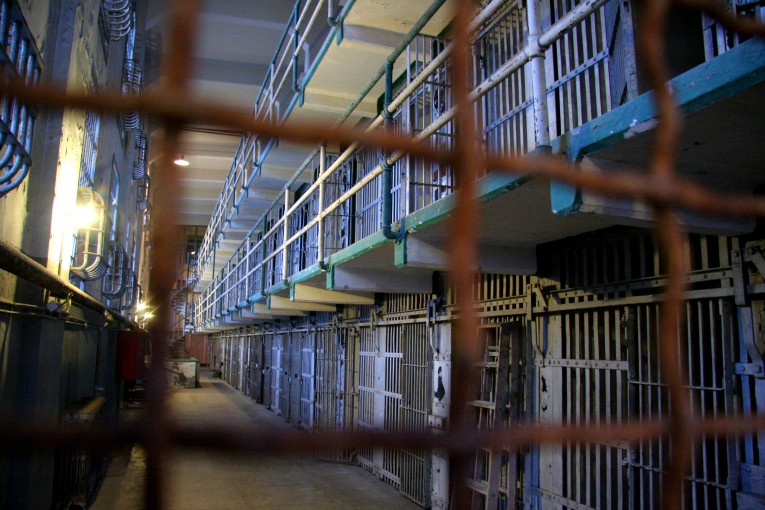

Nicholas Turner, the President and Director of the Vera Institute of Justice writes, “The United States is well on its way to becoming majority minority: by 2045, black and brown people will top 50 percent of our population. This fact makes reform of the justice system—where racial and ethnic disparities are pronounced and stubborn—a matter of moral urgency, but also of national security.”
He notes that “the last year has laid bare the pain and dislocation experienced by many rural and blue-collar white communities experiencing dwindling prospects for economic and social mobility. These are the same communities where, according to our Incarceration Trends Project, jail incarceration rates have skyrocketed in recent years. These are the same communities overwhelmed by the scourge of addiction and the opioid crisis.”
He believes that, while “the President-elect’s campaign called for ‘law and order’ in a way reminiscent of those we’ve heard in decades past, the support for justice reform is broad and deep, and those campaign exhortations should not be taken as indicative of broader sentiment.”
But not everyone agrees with this view. Leonard A. Sipes, Jr. writing in Crime in America, argues that the media and policy advocates “insisted that crime was not increasing while many of our cities were infested with homicides and violent crime.”
He writes, “Per Gallup, American’s fear of crime is at record levels. Gun purchases are soaring. Ninety percent of the crime discussion was on reforming policing, not holding offenders accountable for their actions. Per Gallup, the most recent survey expresses strong support for American law enforcement.”
Mr. Sipes continues, “At what point does the average person simply rebel against the perceived pompous nature of proclamations from justice policy advocates? When Donald Trump protests against the D.C. establishment, is he addressing us? There are major media outlets including crime sites whose sole mission is to question the criminal justice system, not offender accountability.
“Look, I understand that there is a need for criminal justice reform. We all hate bad cops. We need a community focus for policing. We over-incarcerate. We need more programs for the reintegration of offenders,” he said. “But in our advocacy, there seems to be a lack of emphasis as to accountability for people who break the law.”
Meanwhile, Michele McPhee made note of the hidden Trump voter – the police. She writes, “The vote that didn’t show up in the polls, the secret groundswell of support that stunned the media establishment and the pundits and those who proudly stood with her, was not about race or gender or ethnicity. It was about blue.
“For other cops, the silent majority who have watched Hillary Clinton embrace some members of the Black Lives Matter movement, law enforcement officers who were horrified when Dallas County Sheriff Lupe Valdez was interrupted with rude shouts during a moment of silence for her fallen brethren at the DNC Convention, Trump’s win was vindication for those who are doing their jobs without engaging in racial profiling or excessive force,” she writes.
On the other side of the coin, Jerry Otero argues that it was Clinton who “failed to apologize to people of color for mass incarceration: I believe it cost her the election.”
He writes, “Issues critically important to black and brown communities jumped squarely in her lap several times, yet she failed to adequately demonstrate a commitment to them beyond lip-service and some proposals that were too little, too late. I’m talking mass incarceration, her previous complicity in it, and how to begin rebuilding the communities devastated by it.”
He notes, “She missed a unique opportunity to galvanize support in our communities, in an election against a racist opponent in which low turnout by Democratic voters turned out to be the clincher.”
Mr. Otero notes that, while Bill Clinton acknowledges that his omnibus crime bill “made the problem worse,” Hillary failed to follow it up. He writes, “Yet since Bill’s NACCP apology speech, she has failed to fully recognize her role in exacerbating the marginalization and persecution of people of color. Nor has she presented an original cogent blueprint for social justice.”
Even months later, when pressed during her primary debates with Bernie Sanders, he said she couched her language cautiously, saying: “There were some aspects of it that worked well, the Violence Against Women provisions have worked well, for example, but other aspects of it were a mistake and I agree.”
Writes Mr. Otero, “She needed to instead apologize unreservedly for the travesty of mass incarceration and the damage it did, to commit emphatically to dismantling the brutal system that survives by feeding generations of black and brown children into the prison-industrial complex.”
Here’s the problem – in a close election it is hard to learn lessons because small changes would have likely changed the outcome. All one needs to do is look at the five to six million vote gap between President Obama and defeated Hillary Clinton to see how things could have played out differently.
—David M. Greenwald reporting

David, Thank you for this article. My takeaway is that Jerry Otero is an idiot. DeRay Mckesson, arguably the most well known BLM leader, ran in the Democratic primary for Mayor of Baltimore. He received about 3,000 votes (2.5%).
Doubling down on BLM would have cost her far more votes than it would have gained her.